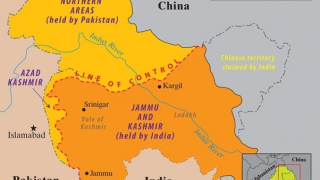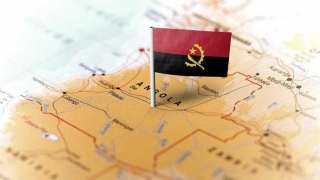Fostering the culture of entrepreneurship and entrepreneurial skills in Pakistan
01.05.2020
It is quite evident that economic development as a conscious mechanism is a recent post-colonial phenomenon in countries like Pakistan. This is, in fact, an exciting period in the history of this country where national and international agencies are working together to achieve a simple objective; achieving economic development and eradicating poverty. Pakistan is taking several measures to achieve these objectives and fostering the culture of entrepreneurship is one of them. Economists view entrepreneurship as a combination of innovation and risk-taking. Whenever such activity thrives, it achieves a high growth rate and offers opportunities to all of society, including the poor. Benefits are offered in terms of growth and employment. All the present entrepreneurial economies in the world are successful as they allow individuals to establish their ventures and promote a healthy competition where everyone tries to come up with innovative ideas, products, and services. This works like a chain reaction and the culture spreads like wildfire.
Entrepreneurship in Pakistan
Globalization has evolved and reshaped the world. There was a time when people used to work 9-5 on a fixed income and were quite happy with their lives. Now, things are changing. More and more people are giving up their jobs to invest time in their startups. This is probably because of the successful local startups have had in a few years. Hence, the idea of sustained income is no longer a benchmark for many people in Pakistan. Therefore, the entrepreneurial culture is budding. The structure of entrepreneurship in a young mind constitutes the commercialization of a concept. This is achieved by strategizing a business idea into a working model. The process involves a lot of risks, capital investment, and management skills. Pakistan, being an underdevelopment economy, has suffered a lot to reach wherever it is today. The country is strangled with many evils such as illiteracy, lack of business sense, and unemployment. Even after all of this, the current generation is looking forward to new avenues of recovery.
In 2013, PML (N) came into power and one of their major targets was to start a culture of entrepreneurship in Pakistan. Although many start-ups were working before they assumed power but due to limited availability of the resources and interest of the Government, they didn’t grow. Out of all the provinces, Punjab became the hub of startup culture. It is undoubtedly Pakistan’s most prosperous province. It has 5 rivers and the province is blessed with fertile flatland, therefore, it has an overwhelming majority of Pakistan’s industrial and agricultural output.
The Punjab Government under the leadership of Mian Shahbaz Sharif didn’t want to sit back and consolidate on the traditional avenues of trade and commerce. They came up with a highly-ambitious plan to diversify the province’s economy by facilitating the reach of technology and entrepreneurship.
Punjab Information Technology Board
Dr. Umar Saif was hired as the CEO of the PITB and the purpose of this organization was to help citizens gain access to technology and make their interaction with the Government accessible and transparent. The Punjab E-gateway project was initiated to develop Punjab as a hub of innovation and IT activity.
Making Technology accessible
The Government of Pakistan started a laptop scheme through which 100,000 free of cost laptops were provided to deserving university and college students. The idea of this scheme was to making technology accessible in Pakistan so that it creates a force multiplier effect and it helps sectors such as health, communication, and education. Most importantly, impacting the entrepreneurship.
Incubating Startups
PITB started its flagship project to promote entrepreneurship in form of two startup incubators – Plan 9 and recently launched Plan X. When it started, they had more than 60 startups including success stories such as Bookme.pk and Eyedeus Labs. These startups were able to pitch their products to global audiences. Plan X was launched in September 2014 which worked as more of an accelerator, helping budding startups to expand, gain access to funding opportunities and their customer base. Plan X produced startups like X-Gear, Baby Planet, and Travly.
Arfa Software Technology Park (ASTP)
One of the greatest initiatives of Punjab’s Government was Arfa Software Technology Park (ASTP). It is a seventeen-story building located in the heart of Punjab, Lahore and till date the largest technology center in Pakistan. It hosts both the local software companies and foreign investors. The park is home to both Plan X and Plan 9 and global heavyweights such as Dell, Microsoft, and General Electric among others. The software park hosts startup events on a regular basis to help local companies meet institutional and foreign investors.
Idea Coron Ka
The show was created by Neo TV and Superior Group and it was more or less Pakistan’s version of the reality show Shark Tank. The show gave budding entrepreneurs a platform to present their ideas to investors and business tycoons. These people will analyze their ideas and help them transform into reality.
Universities offering degrees in Entrepreneurship
Realizing the demand and shift of a vast majority of students to entrepreneurship, many universities in Pakistan have capitalized on this demand and offering degrees and course in entrepreneurship. Notable institutions like IBA and LUMS are offering degrees and courses in entrepreneurship.
Why does Pakistan lack Businessmen like Tata Birla and Ambanis?
India is destined to be one of the world’s largest economies in the years to come. The economic indicators are doing well and tourism is on the peak. The big fishes in India’s business landscape deserve a lot of credit for this. Businessmen like Tata Birlas and Ambanis run multi-billion dollar corporations. But why doesn’t Pakistan have these business giants? There is a number of reasons for this shortcoming. Firstly, the cost of participation in someone else’s war is always very high. Years after its end, peace is very unlikely to achieve. Pakistan has suffered a lot from the war on terror and we couldn’t create a safe environment for the businesses to grow. Secondly, government policies have never been business friendly. All the governments in the past have failed to recognize the importance of local businesses, their services, and products. This lack of interest has created a void that is very hard to fill. Thirdly, our society sticks to traditional avenues of income. You’ll rarely find any household that’d want their child to start off the business of his own and excel in that. Lastly, our startups don’t attract foreign investors. Primarily because they didn’t see the potential of investing in the country but it is good to know the times are changing.
How to promote Entrepreneurial Culture in Pakistan?
If you look at the statistics, you’ll find that an incisive appraisal of all successful economies is that their economic prosperity is propelled by entrepreneurship. The examples of countries like the US, China, Japan, and Germany are quintessential of the things entrepreneurship can do in the economic development of the country. They are role models for other aspiring nations and show us how to achieve self-sustained growth in tough times. But how we promote the already budding entrepreneurial culture in Pakistan?
Firstly, the promotion of entrepreneurship is only possible if people with innovative ideas get access to vital resources such as capital and have a basic understanding of how to initiate a business. The responsibility lies in the hands of the Government and its economic managers to facilitate small and medium-sized enterprises as they are less volatile and more stable. However, governments can only provide an enabling environment to spur economic prosperity and major responsibility lies on the people.
Secondly, we need to promote incubation centers. Pakistan has countless examples of people who have come up with innovative ideas, products, and services that can solve issues for the common man. What we lacked in the past was a robust platform for those who wanted to pursue their dreams and develop their ideas into finished products. For example, Ignite National Technology Fund is a non-profit organization owned by the Government of Pakistan. The organization funds startups and operate incubators. We need more and more programs like these to foster the culture of entrepreneurship in Pakistan.
Thirdly, there are a lot of societal constraints surrounding entrepreneurship which are largely due to the family-oriented culture of Pakistan. Although we have realized the importance of education parents exert a great deal of influence on career decisions. Therefore, it thwarts the innovative capacities of young minds. To overcome this barrier, young entrepreneurs need to build confidence and have to take a stand to turn their university business idea into a small venture.
Creation of an entrepreneurial ecosystem
Entrepreneurship is a hectic job and entrepreneurs are notoriously busy. They spend all of their time in developing exciting businesses. However, most of them don’t understand the importance of the ecosystem surrounding their ventures. Sounds crazy, doesn’t it? Why would someone bother to create an environment in which competitors can thrive in? Obviously, it is a tough job to secure funds, attract the best talent, and keep pace with everything else. But there is another dimension to this. To get there, we need to understand what an entrepreneurial ecosystem generally is.
Ecosystem refers to all the stakeholders such as suppliers, distributors, and competitors involved in the delivery of a specific project. An ecosystem is an amalgamation of cooperation and competition. Both of them are quite common in our nature. The concept of survival of the fittest applies here. Basically, it is intertwined such that participant influences and gets influenced by the other. For survival, every participant must become flexible and adaptive. There has to be a proper balance otherwise some businesses will thrive while others falter.
Why is it important?
The ecosystems transform the way organizations view economic value. It gets no longer about best-selling product or services or customer trends. It brings greater scrutiny on changing circumstances with other significant stakeholders such as employees, vendors, and government policymakers. In a nutshell, these ecosystems prioritize all stakeholders and the dynamic interactions between them encourage collaboration and growth. Successful ecosystems develop avenues where concepts, talent, and resources are exchanged. As a result, moments of brilliance and invention become more consistent.
Impacts of Businesses
No matter how big or small the scope of a business is, it creates a great impact in its surrounding. While large businesses help a country on a macro level, small businesses have the ability to reflect a community’s character and are able to interact with their neighbors on both a personal and business level; something large corporations are unable to do. The economic benefits of big or small businesses are numerous:
Local Jobs
With the promotion of entrepreneurial culture comes an increase in the number of available jobs. Local jobs are ideal due to a number of reasons. People don’t have to travel much to get to their offices and it saves them a lot of time. The unemployment rates decrease and in turn producing great numbers for the economy.
If the ecosystem is healthy, the creation of local jobs within the small businesses is accompanied by an increase in job opportunities at other nearby businesses.
Increase in Tax Base
These businesses generate revenues and the tax money is added into the economy creating stability. This means that local ventures started by students or any other individual can create a support system and the country can reap the benefits.
Product Diversity
Entrepreneurship and innovation come hand in hand. The entrepreneurial culture brings innovation and diversity. To make themselves stand out from the rest, businesses need products and services that are fresh, new, and different. As a result, the market achieves product diversity which creates a healthy competition.
Conclusion
Lastly, we need to work together. If your friend or someone you know has set up a small business, it’s your duty to support the business. In Pakistan, people don’t hesitate to demand small favors from the entrepreneurs free of cost. We need to change this attitude. Better government policies coupled with individual efforts can really help Pakistan in the long run!














